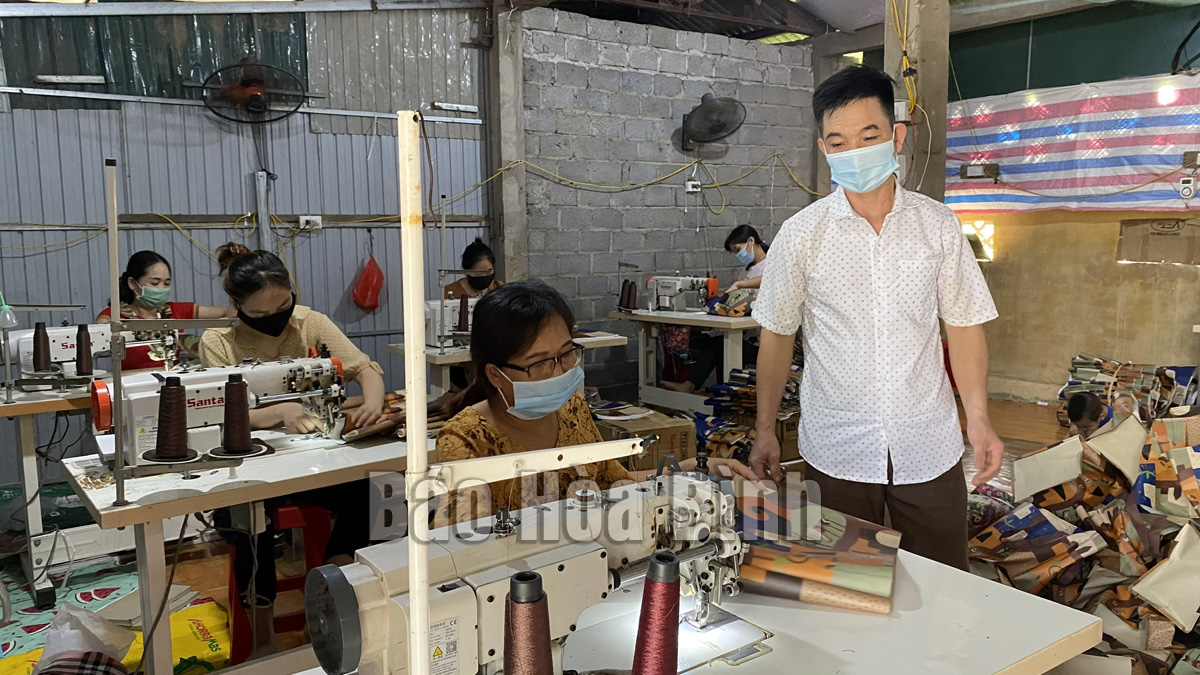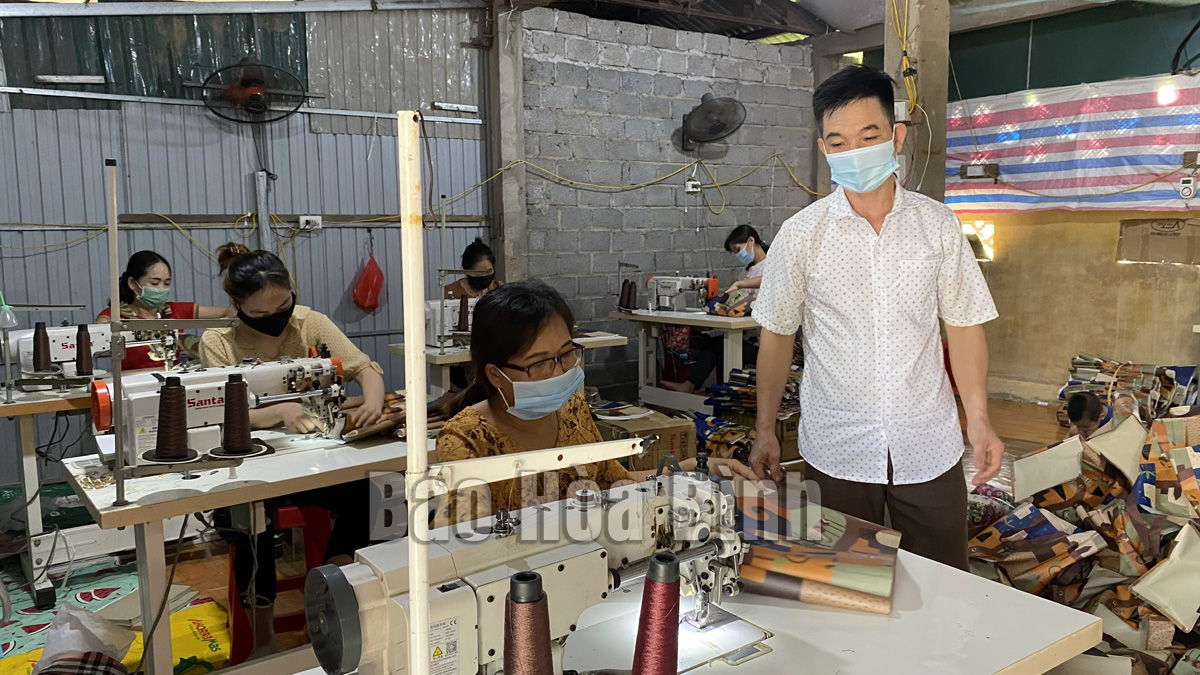
(HBO) – In response to the movement "War veterans help each other reduce povery, do business” for the 2016-2021 period, officials and war veterans of Lac Luong commune, Yen Thuy district emulated to improve livelihoods. So far, the commune is home to 10 poor war veteran households, accounting for 3.4 percent, down 77 households compared to 2017. The average income of each veteran reaches 26 million VND per year.
War veteran Quach Van
Vuong in Luong Cao hamlet of Lac Luong commune, Yen Thuy district, develops a garment
processing model to create jobs for local residents.
The first impression when meeting veteran Bui
Xuan Nui in Thong Nhat hamket, Lac Luong commune was his agility and passion
for household economic development. Previously, his family developed
cultivation in combination with animal husbandry, but at a small scale. Since
February 2021, he has developed a buffalo and cow farming model on a site of
120 sq.m with 11 heads. To have a food supply available, he renovated his 3,000
sq.m garden to grow elephant grasses and over 3ha of white sugarcane. He earns
about 200 million VND on average each year.
The communal war veterans’ association has 289
members in eight chapters. During the 2016-2021 period, the movement "War
veterans help each other reduce povery, do business” attracted many veterans
who ventured to escape poverty and make rich in the homeland. The association
urged its members to switch to grow new plants, breed new animals, adopt
technological advances to increase production and quality. The commune has two
working groups, four farms, 18 production and trade facilities owned by
veterans, which generated jobs to nearly 100 local workers with an average
monthly income of 4-6 million VND per capita. At present, the rate of middle
and high-income veterans’ households accounts for 91 percent, and four out of
eight veterans’ chapters do not have poor members.
Apart from developing household economy, war
veterans upheld the sense of solidarity and offered mutual support to escape
poverty sustainably. Each year, funds raised by them are used to create capital
and help poor members. This year, the communal veterans’ association built a
fund worth 130.1 million VND, or 451,000 VND per member on average. In
partnership with the communal branch of the Vietnam Bank for Social Policies
with a total outstanding loan worth 10.1 billion VND, the association helped
223 veterans’ households and residents access loans. It also maintains 2-3
training sessions per year in the fields of cultivation, animal husbandry and technological
transfer. It also partnered with the district veterans’ association to support
the construction of two houses for poor members./.
According to data from the Hoa Binh Provincial Party Committee, the industrial production index for the first six months of 2025 is estimated to have increased by 20% compared to the same period last year. This marks the highest year-on-year growth rate for this period since 2020.
In the first six months of 2025, Hoa Binh province’s export turnover was estimated at 1.145 billion USD, marking an 18.11% increase compared to the same period in 2024. Import turnover was estimated at $ 804 million, a 17.15% increase, which helped the province maintain a positive trade balance.
The lives of the ethnic minority farmers in Tan Lac district have gradually improved thanks to the new directions in agricultural production. This is a testament to the collective strength fostered through the professional associations and groups implemented by various levels of the district’s Farmers’ Union.
With the motto the "product quality comes first,” after nearly one year of establishment and operation, Muong village’s Clean Food Agricultural and Commercial Cooperative, located in Cau Hamlet, Hung Son Commune (Kim Boi district), has launched reputable, high-quality agricultural products to the market that are well-received by consumers. The products such as Muong village’s pork sausage, salt-cured chicken, and salt-cured pork hocks have gradually carved out a place in the market and they are on the path to obtaining the OCOP certification.
In the past, the phrase "bumper harvest, rock-bottom prices" was a familiar refrain for Vietnamese farmers engaged in fragmented, small-scale agriculture. But today, a new spirit is emerging across rural areas of Hoa Binh province - one of collaboration, organisation, and collective economic models that provide a stable foundation for production.
Maintaining growing area codes and packing facility codes in accordance with regulations is a mandatory requirement for agricultural products to be eligible for export. Recently, the Department of Agriculture and Environment of Hoa Binh province has intensified technical supervision of designated farming areas and packing facilities to safeguard the "green passport" that enables its products to access international markets.



